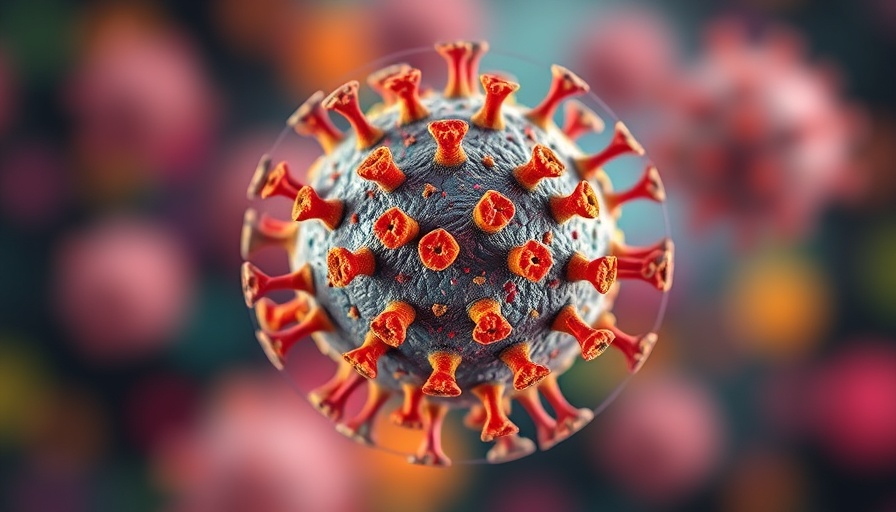
Understanding the Long-Term Risks of Measles and the Life-Saving Role of Vaccines
Measles is more than just a childhood illness; it can have serious and lasting repercussions for those infected. While measles kills between 1 and 3 out of every 1,000 children infected, the dangers extend beyond the immediate effects of the virus. Issues like 'immune amnesia' and residual health problems showcase the need for vaccination as a critical tool in safeguarding children's health.
The Shadow of Immune Amnesia
One alarming consequence of a measles infection is the phenomenon known as "immune amnesia." This term refers to the significant reduction in a person's immunity to other diseases after measles infection. Recent studies indicate that individuals can lose between 11% and 73% of the antibodies they had retained for other past infections. As a result, children who recover from measles may find themselves vulnerable to diseases they were previously immune to, necessitating vaccinations for those illnesses once again. Interestingly, this could mean that a child who was once protected against mumps or rubella could become susceptible again following measles.
Real-Life Consequences of Measles Infections
The impact of measles goes beyond malady during the infection; it can have compounding effects years later. As observed in instances following recent outbreaks, children who contract measles often suffer more than just the acute symptoms. For example, beyond the fever, cough, and characteristic rash, about 1 in 1,000 cases might result in brain swelling or encephalitis—conditions that can bring about lifelong complications such as seizures or permanent neurological damage.
Measles Outbreaks: A Growing Threat in the U.S.
With measles successfully eliminated in the U.S. since 2000, many healthcare professionals have rarely encountered the virus. However, as outbreaks occur in states like Texas and Minnesota, experts highlight the importance of maintaining high vaccination rates. The two-shot MMR (measles, mumps, and rubella) vaccine boasts a 97% efficacy in preventing measles but requires widespread acceptance to be effective in community immunity. Stinchfield, a prominent infectious disease nurse practitioner, shared vivid accounts from the emergency room during a 2017 outbreak. She noted that even children who manage to leave the hospital after treatment often look utterly diminished, portraying the grave impact of measles infection on young patients.
Medical Recommendations and Public Health Actions
To counteract the risks associated with measles, healthcare providers advocate for maintaining regular immunization schedules. The CDC recommends that all children receive their first dose of the MMR vaccine around the age of 1, followed by a second dose at 4 to 6 years old. This proactive approach is crucial in combating the potential resurgence of these easily preventable diseases, particularly in the face of rising anti-vaccine sentiments nationally and globally.
Call to Action: Protect Our Children Through Vaccination
The battle against measles is best fought with community efforts, led by informed and proactive parents. Engaging in discussions with healthcare providers about vaccination schedules, understanding the importance of herd immunity, and protecting vulnerable populations can significantly reduce the risk of outbreaks. Every vaccinated child not only safeguards their well-being but contributes to the health of the community. It’s critical now more than ever to prioritize vaccinations as a means of ensuring a healthier future for the next generation.
 Add Row
Add Row  Add
Add 




 Add Row
Add Row  Add
Add 

Write A Comment